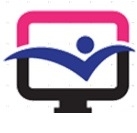A new approach of for hybrid education
4 years agoAmong the difficult problems we face lately is the approach of the , especially virtual laboratories or practice-based training.
The different educational methodologies did not take into account the complexity of these components of learning, especially for long periods in which classes are conducted only online or for quick alternations between online classes and classes in the classroom.
However, to develop a methodology and tools useful only for online education, seems to us an approach as wrong as the one in which only the competencies and skills developed in the classroom are targeted.
Our interest in this type of learning is increased by the pandemic interference of CORONAVIRUS with school life. That is why we try to prepare our teachers, but also our students and parents, to deal with such situations.
We propose an approach that allows the training of students, regardless of how the training is organized, in the classroom, onine or a mixture of these forms. We will insist on the transferability of the tools we will create and use, through methods adaptable to each situation.
We want to develop a project that, in short, will empower teachers to design and coordinate activities with hybrid potential, and students to know the reality in an innovative way, based on research methods supported by technology. Online labs are more than accessing simplified simulations that do not arouse students' interest, are not based on their experience outside of school, do not contribute to the development of transdisciplinary skills useful to future graduates.
Also, for students, the methodology will involve project-based learning. The goal is to develop methods to help students meet the challenges of their lives and the world they will live in; we will use free software, which has the potential for project-based investigation, interactive simulations, and various tools, based on video analysis, sensors and augmented or virtual reality.
Finally, we will propose a new curriculum that includes transdisciplinary approaches to hybrid education.
We want to collaborate with schools (students age 14-18), as well as with other partners who are interested and who can contribute to the creation of resources, dissemination of results and sustainability of the project. We are open to concrete proposals that could contribute to achieving the proposed goal.

Please Log In to See This Section